Euro-American Financial City
-
Location
Hangzhou
-
Client
Hangzhou Europort Real Estate
-
Design
Foster + Partners, MG2, Benoy
-
Building Area
710000㎡
-
Curtain Area
500000㎡
-
Completion time
2019
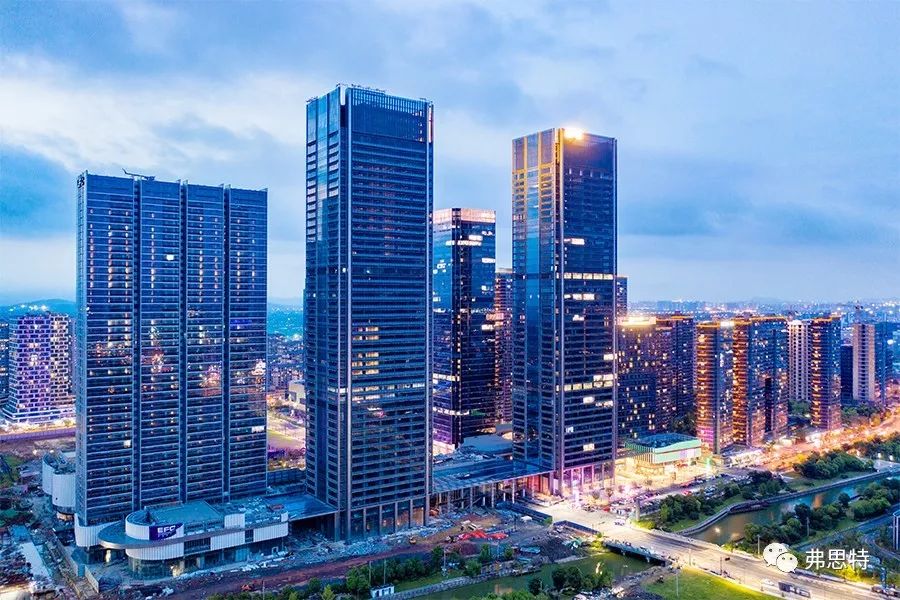
Project location
EFC is located in the CBD core area of Hangzhou Future Science and Technology City, with Xianlingang West Road in the east, Hongwei North Road in the south, planned road in the west and planned road in the north. The overall planned construction area is nearly one million square meters, covering urban American houses on subways, super-A LEED platinum office buildings, Renaissance Hotel under Marriott, International Student Ridge Hall, international serviced apartments and e-shopping Mall.
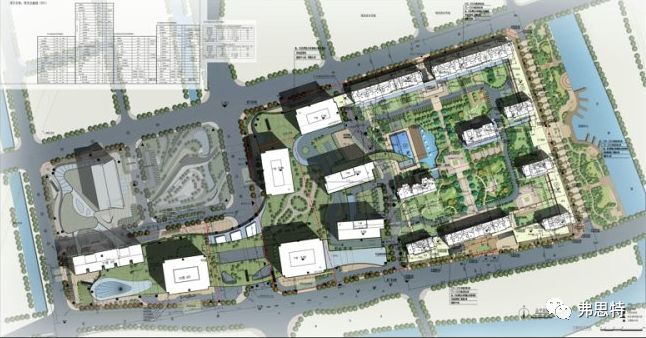
Project background
EFC is positioned as a large-scale business complex in Hangzhou. For the project, two 200-meter-high Grade A office buildings, five-star hotels, two serviced apartments and three Grade B office buildings are combined, which are planned around the 200-meter commercial corridor of Central Park and located above the connected podium buildings. EFC is currently one of the largest, most advanced and internationalized urban complexes in Hangzhou. In the process of Hangzhou moving towards a world famous city, EFC is undoubtedly a scientific and technological gold business card that Hangzhou City shows to the world.
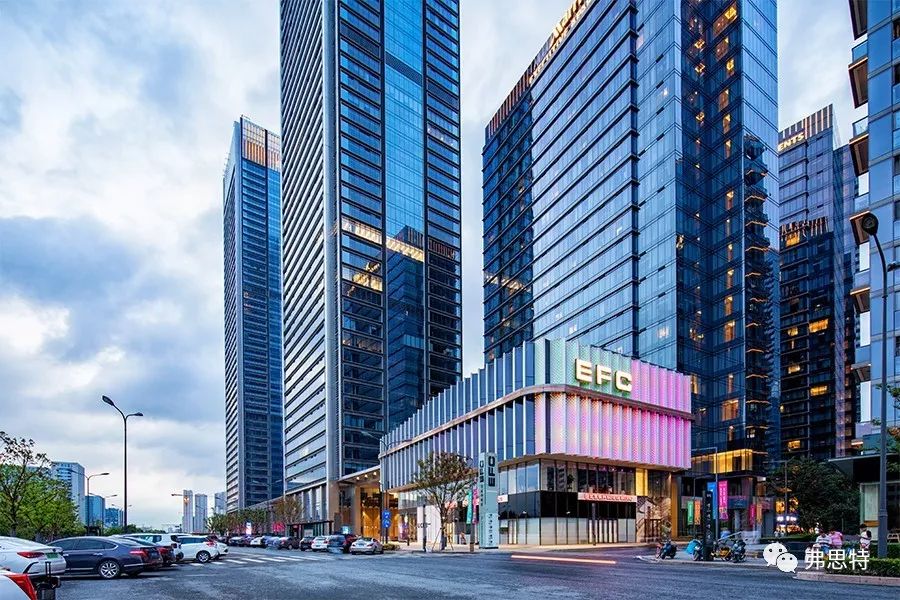
The project scheme is jointly created by Foster Architects, an internationally renowned scheme company, American MG2 Architectural Design Company and Hong Kong Benoy International Co., Ltd. Architectural design is detailed by domestic large-scale design institutes such as Zhejiang Province Institute of Architectural Design and Research and The Architectural Design & Research Institute of Zhejiang University Co., Ltd., which are large domestic design institutes. As the facade consultant and consulting unit of the project, FORCITIS provides services in the whole process from early scheme communication to scheme determination, project demonstration and evaluation, bidding cooperation and construction quality management.
Facade system of commercial podium building
The commercial podium buildings of the project are built by Benoy. The main purpose of the scheme design is to ensure that the commercial shopping center can become the main thread of the design scheme. In terms of design, it can create an effect that the indoor and outdoor elements complement each other, and provide a seamless cross-regional design language for the development project. The layout of commercial podium buildings takes the current popular flowing arc as the main line, and forms the overall commercial body layout through the combination of four layers.
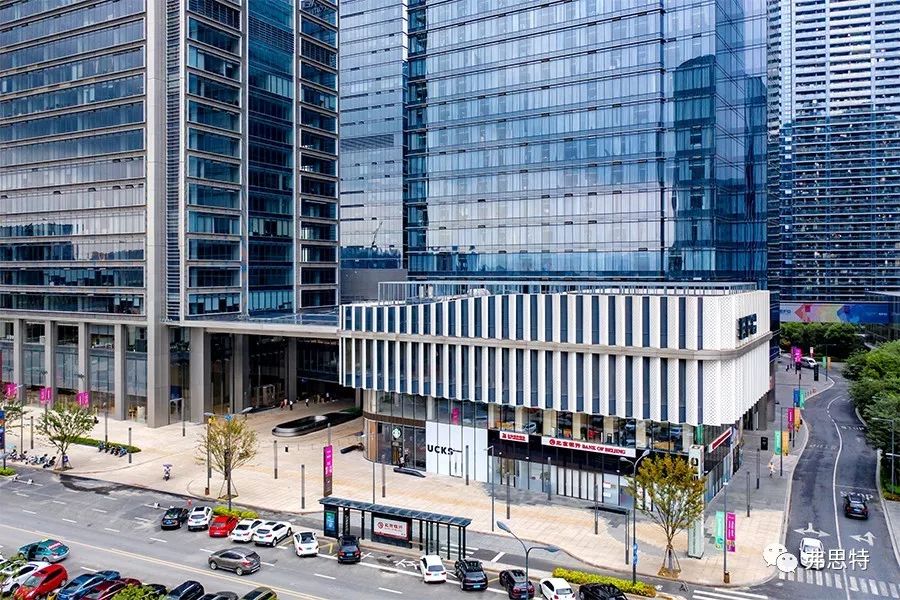
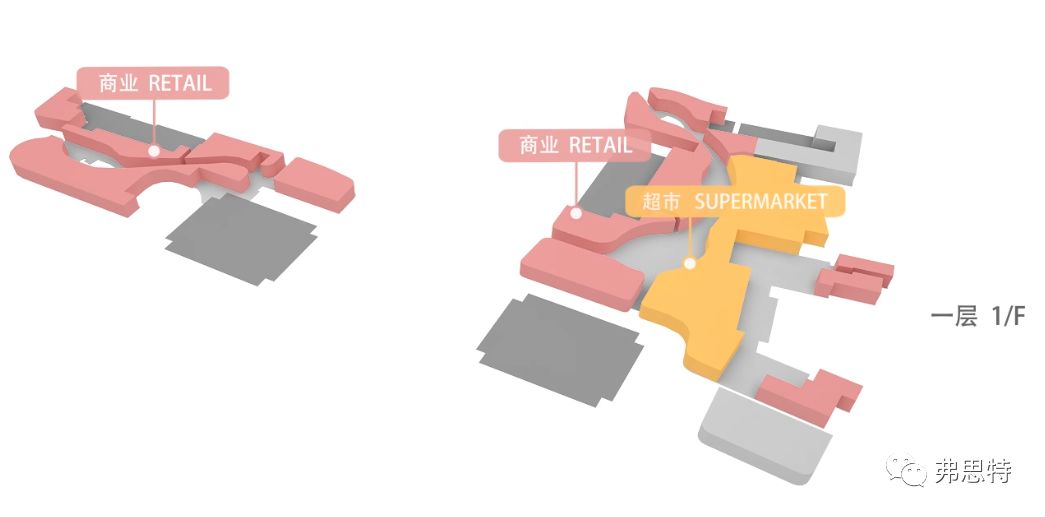
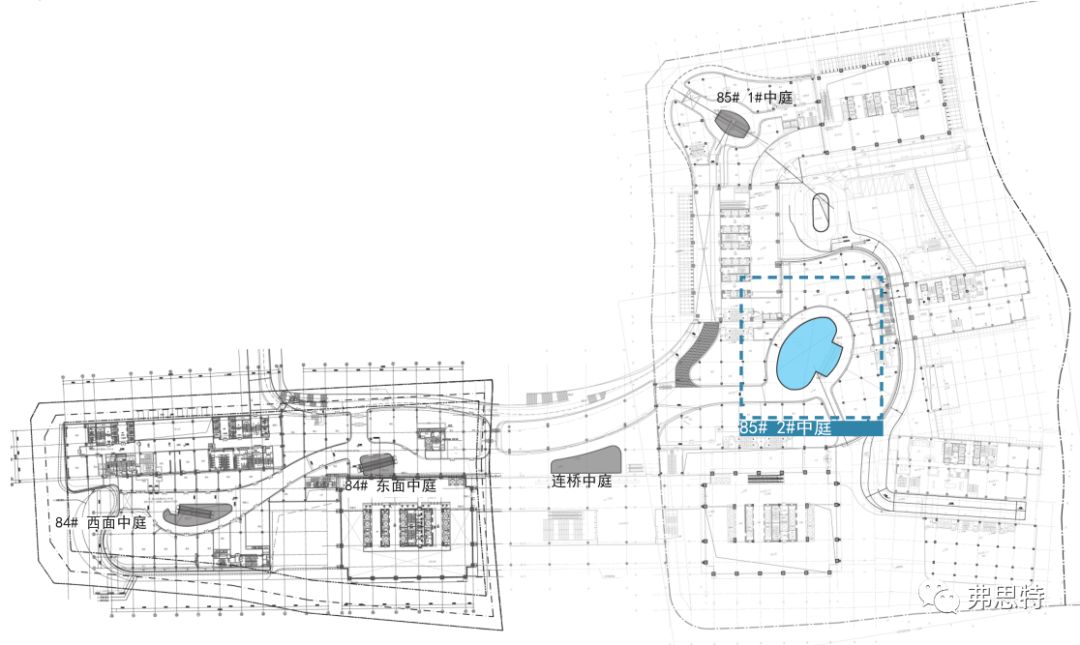
Arc canopy system
The outline of the canopy is similar to Taijiyu pattern, and the canopy has a large overhang (the maximum overhang distance of the canopy is 12m), which is located above the main commercial entrance, and tie rod is provided if there is not structure on the top. Toughened sandwich colored glazed glass is used as the main surface layer of canopy. The drainage system is set at the front-end modeling part, the distance between the main steel beams is 4.8m, and LED floodlighting is embedded in the aluminum alloy decorative lines of the glass bottom apartment.
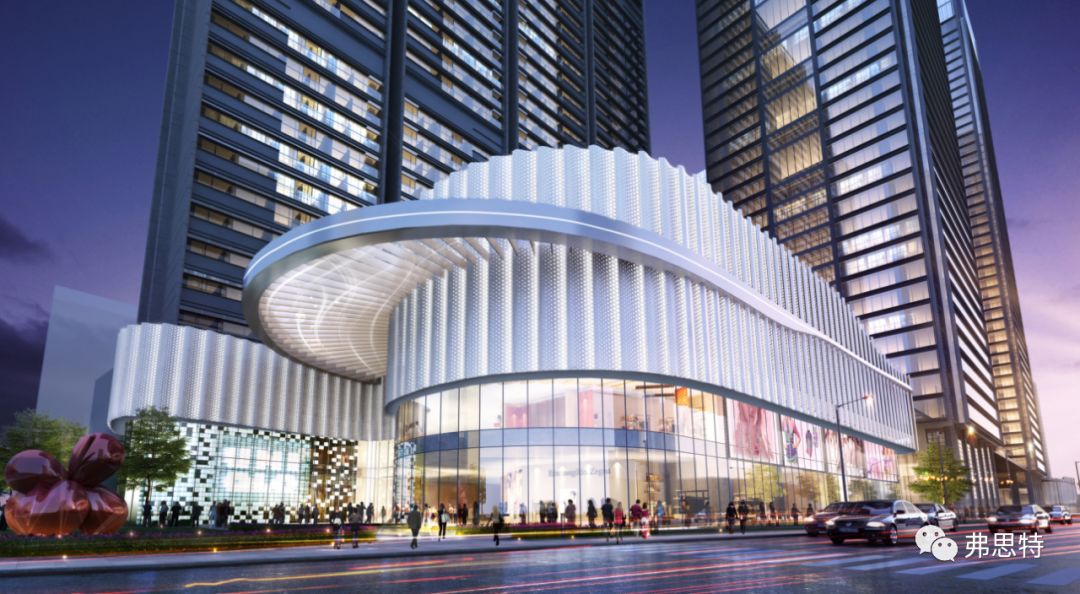
From the point of view of scheme, it is impossible to be realized if the canopy is only cantilevered by steel structure. Thus, in the scheme stage, FORCITIS suggested that the main structure should be the steel-reinforced concrete to cantilever the main stressed steel beam from the main structure, in order to ensure the stiffness of the root joints of the steel beam. Spatial trusses are made along the periphery of the canopy as secondary beams, which are connected with the main structure on the north and south sides, and supported by steel beams (the steel reinforced concrete beams extending outward) in the middle span. The canopy beam is simply supported between the spatial truss and the main structure. In this scheme, the bending moment produced by canopy is effectively transmitted to the vertical members, which can avoid the torsion of concrete beams and achieve better scheme effect.
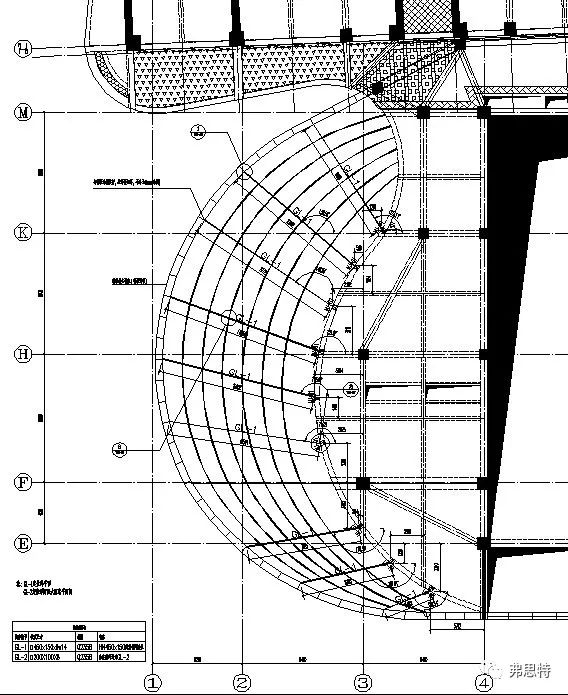
▲ Layout of canopy structure on southwest of podium building
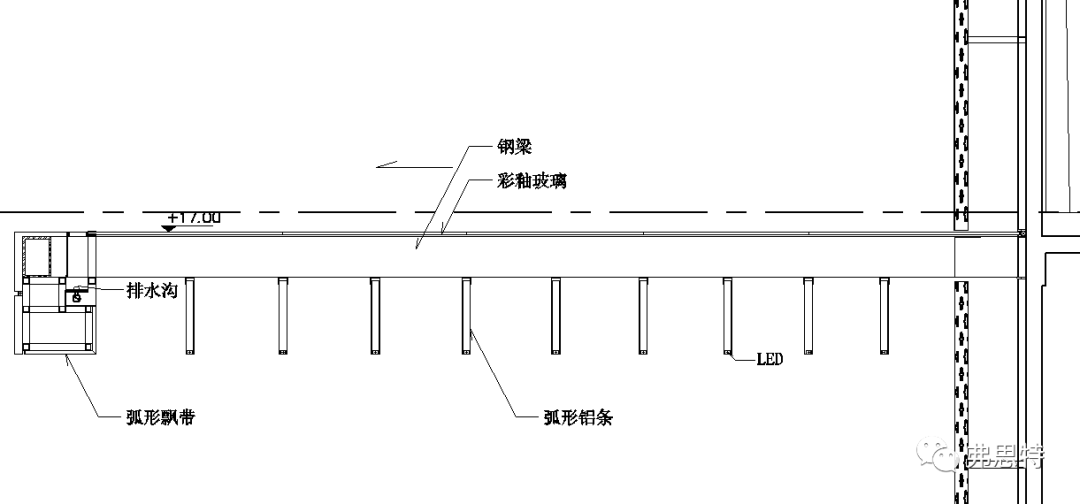
▲Canopy profile on southwest of podium building
Arc perforated metal facade system

▲Structural effect of perforated aluminum panel in northwest facade
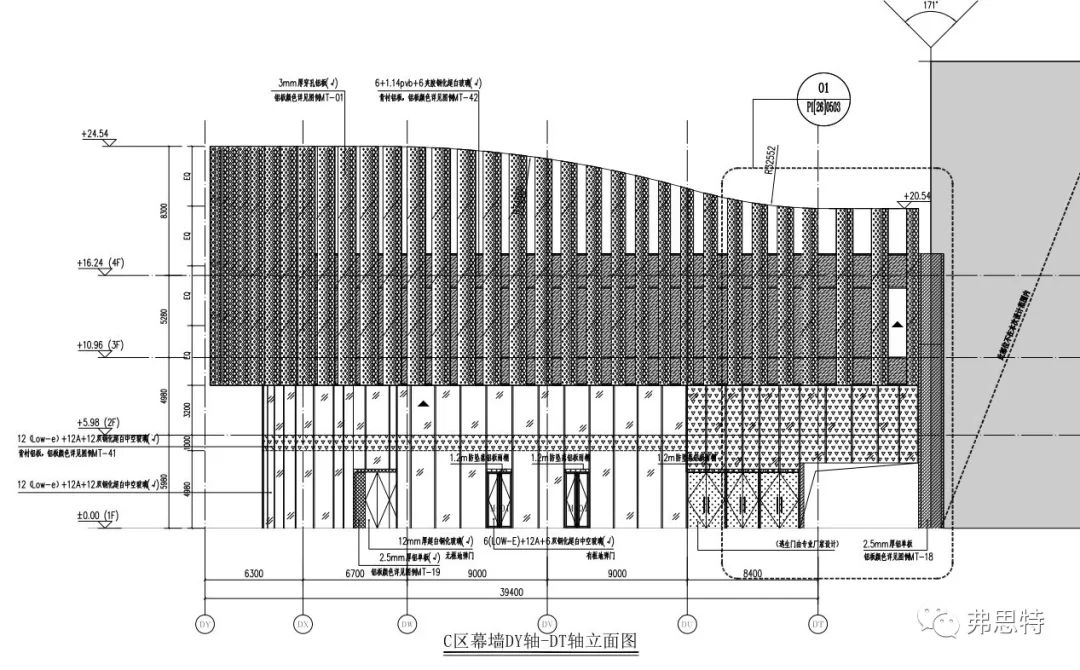
▲Northwest elevation
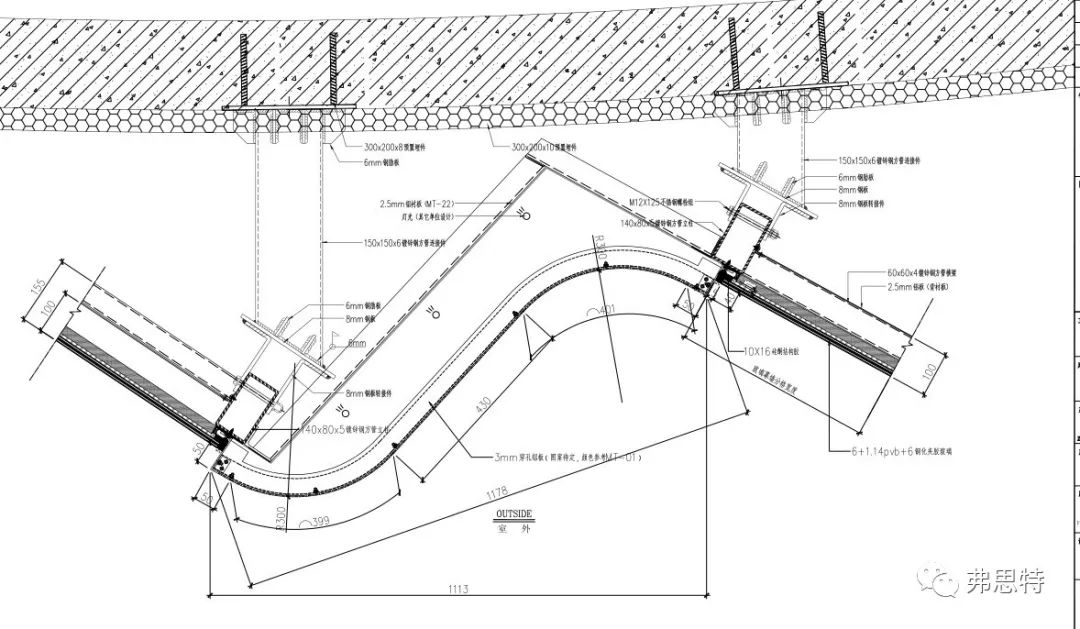
▲Standard joint diagram on northwest
Three kinds of perforated aluminum panel styles with different shapes are set in the southwest corner, northwest corner and southeast corner of the podium building of the project. Combined with the alternated glass, it can meet the requirements of inner lighting and improve the rhythm of facade change. In order to ensure the integrity of facade, the glass facade is not provided with windows, and mechanical smoke exhaust equipment meets the ventilation requirements. A floodlight source is set on the inner side of the perforated aluminum panel and the vertical notch. Considering the fullness and continuity of the floodlight source, a metal aluminum panel with high reflective coating and a uniform light cloth are separately set on the inner side.
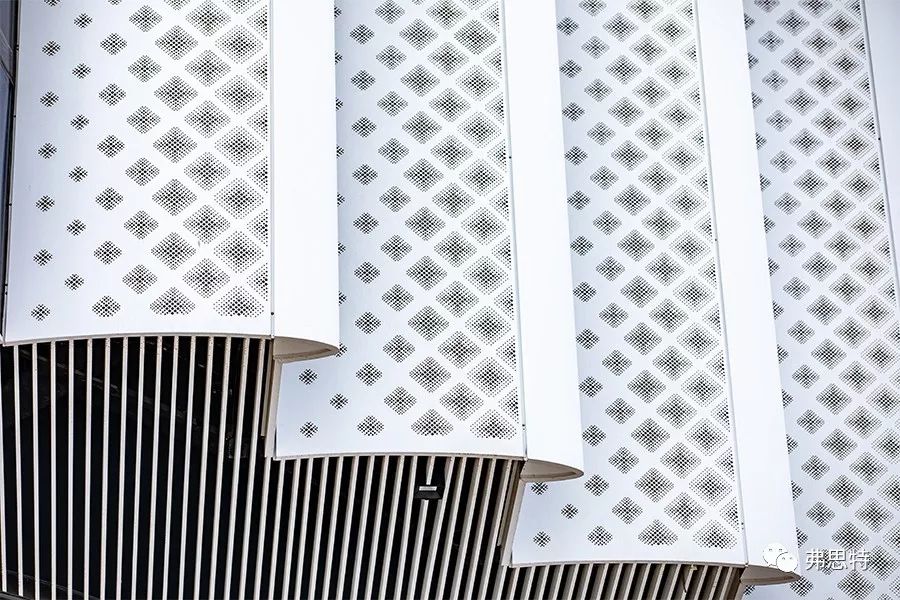
The thickness of perforated aluminum panel should be the 3mm high-grade material. From the perspective of effect, the typesetting size of perforated aluminum panel is expected to be large. To solve the deformation problem of perforated aluminum panel, the short side size is controlled within 1.2m and the height direction is 4.5m—5m. Of which, for the S-shaped one, its two arcs are used to improve the rigidity. In the stage of arranging the perforation patterns, certain rules are used to avoid the range of aluminum panel reinforcing ribs.
Evolution system of arc perforated metal template
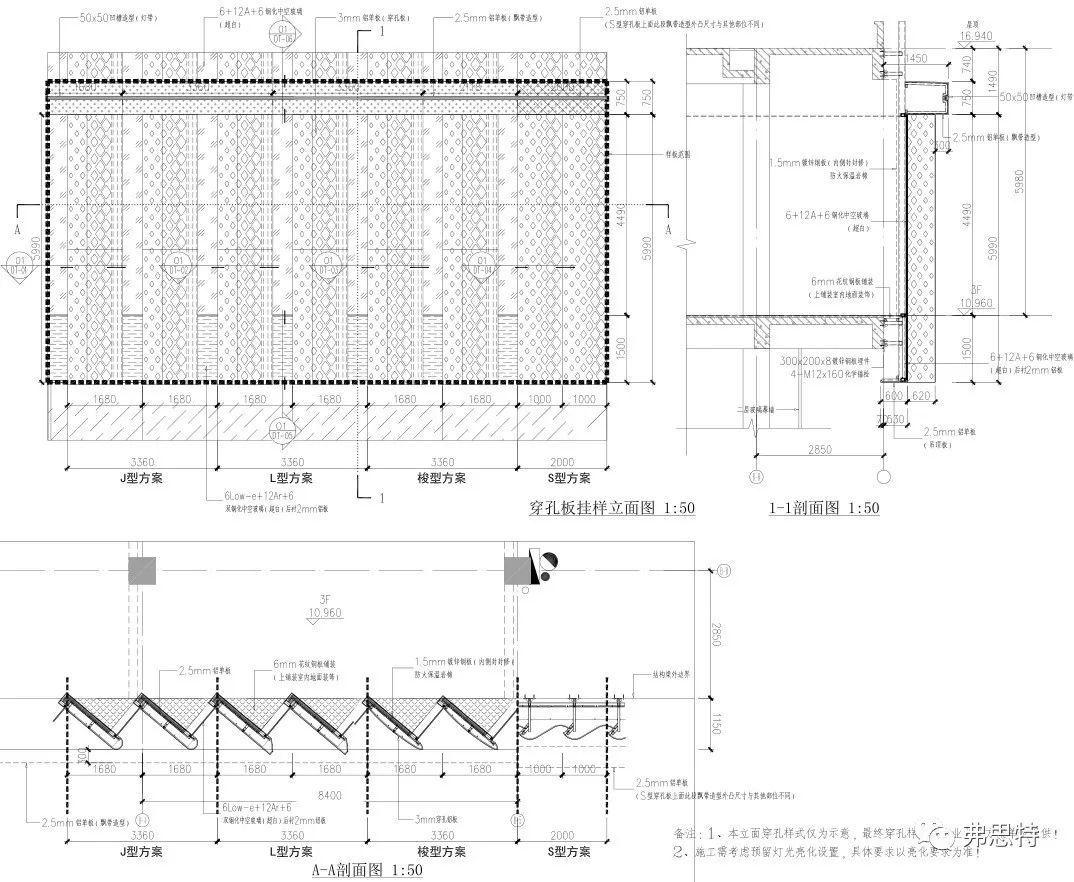
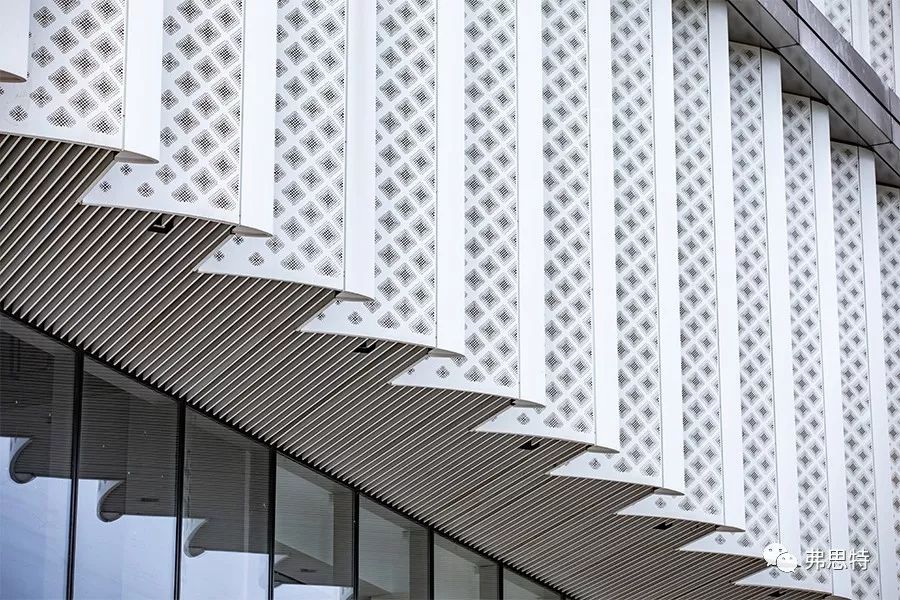
▲Perforation pattern of facade scheme
Before the shape of metal perforated aluminum panel is finalized, FORCITIS monitors the implementation process of facade effect and quality by establishing a model system to ensure that the products meet the design function and quality requirements.
Glass facade system
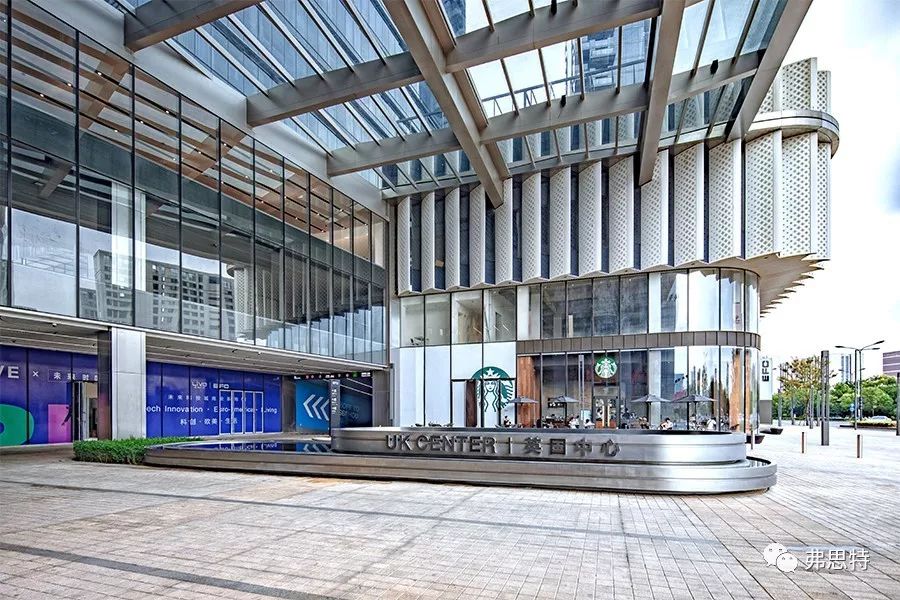
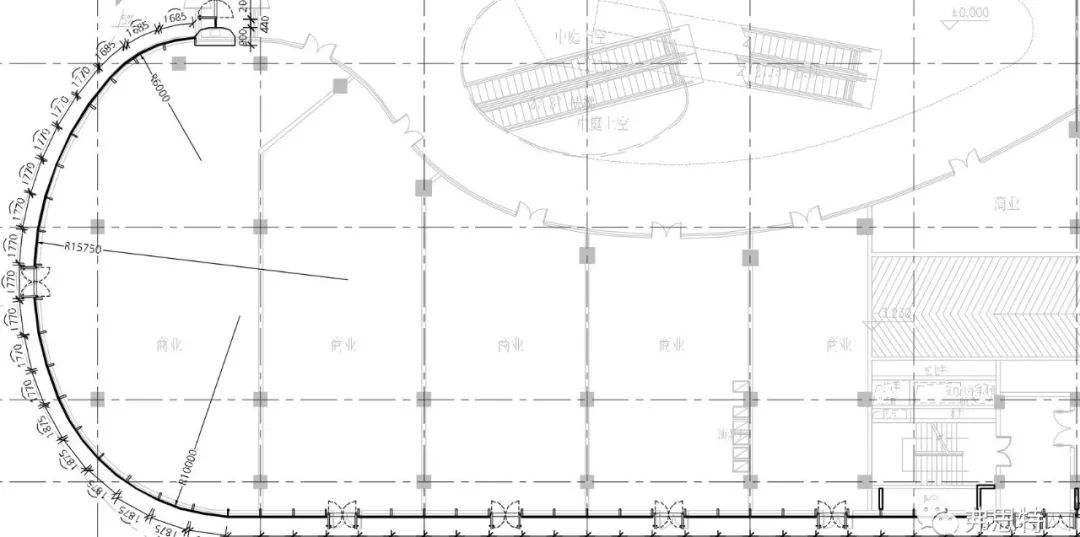
▲Plane separation of commercial glass facade
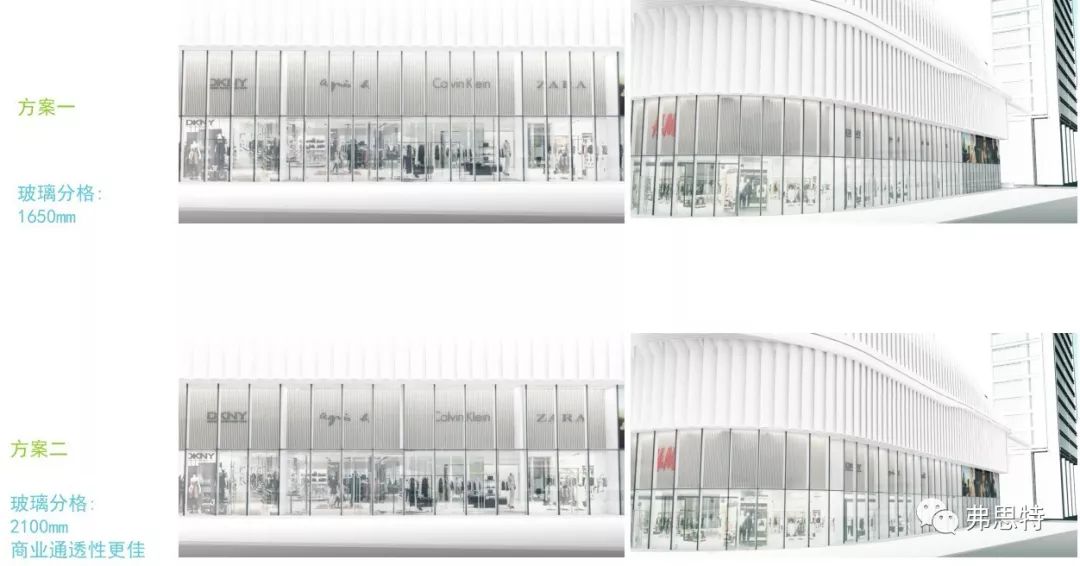
▲Separation comparison renderings
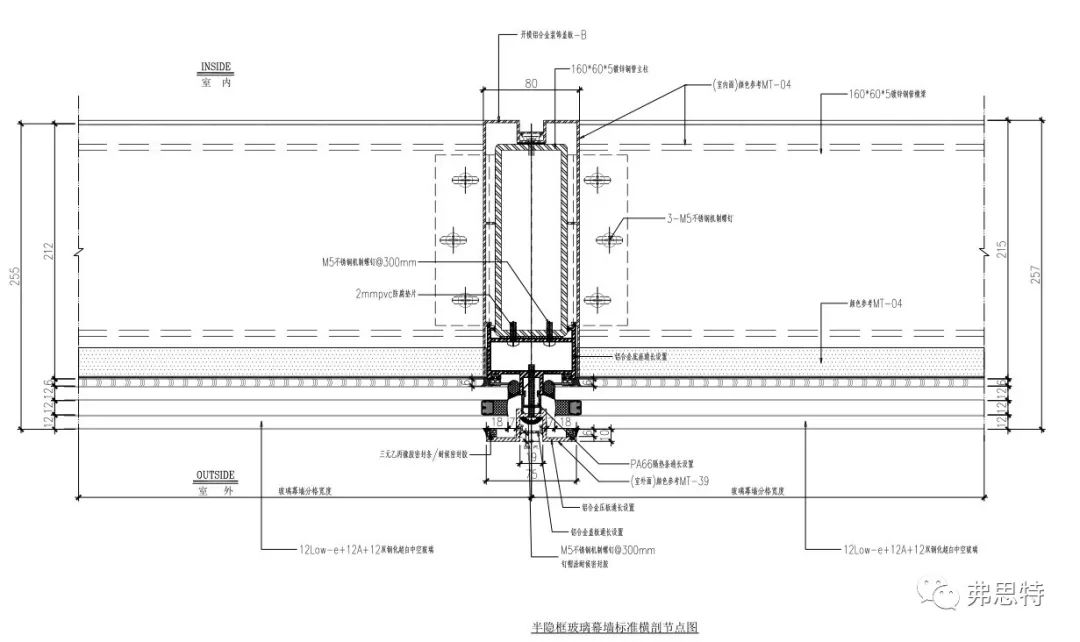
▲Standard joint diagram of commercial glass facade
The fixed modulus is not provided for the podium buildings of the project. Thus, it is difficult to divide the horizontal grid of glass by using the column grid. At the beginning of setting the compartment width, the main consideration is to ensure the commercial permeability of the podium building, and to consider the economy and safety of the monolithic glass area.
Through the implementation of the project case and model comparison, under the condition of weighing to meet various requirements, for the division of glass width, the modulus before 1.68 m ~ 1.8m is selected as the standard width modulus of the project. To ensure the safety of glass facade, all glasses are configured with ultra clear and high transparency. The small exposed frame structure is set vertically, and the influence of opposite side effect of outer frame of column is weakened, with a column span of 5.98m. Considering the economy of profiles, the steel profiles are used for the beam of frame columns, and decorative profiles are outfitted with open moulds.
Corner canopy system
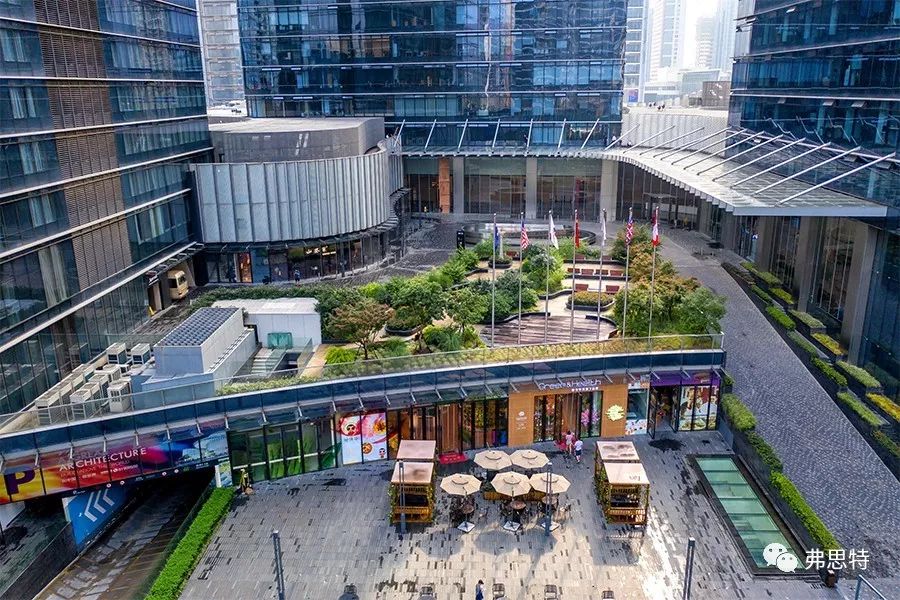
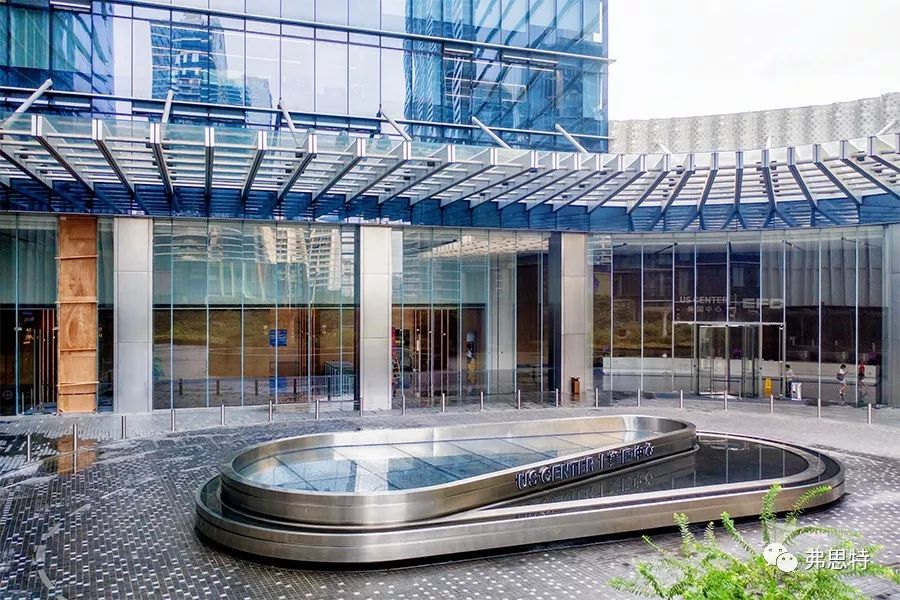
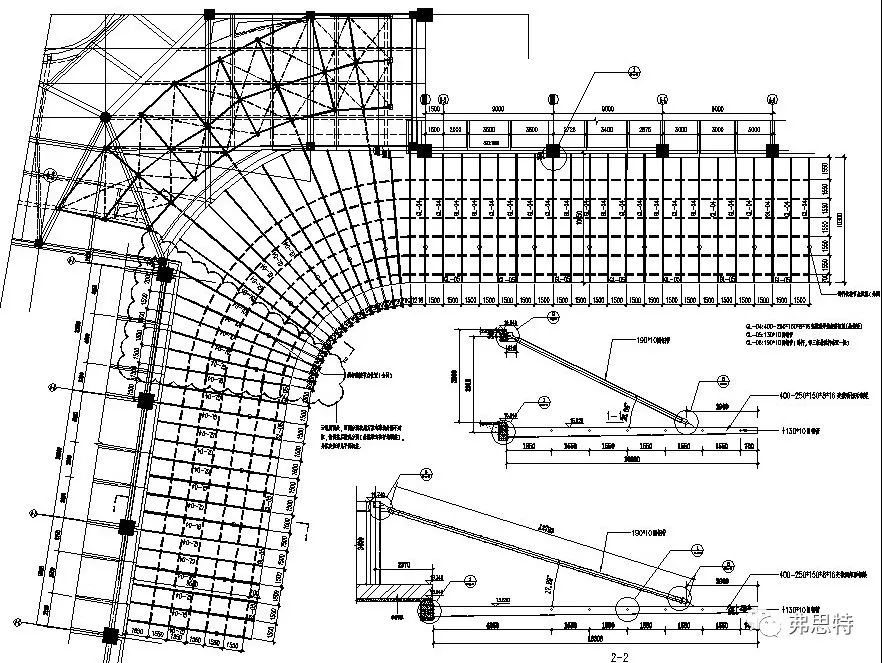
The supporting conditions of corner canopy structure are complex, and the canopy overhang length is large (with maximum value of 12.8m). If there is no structure at the top of the podium building, the pulling joints should be provided for the canopy tie rods, and the canopy spans the expansion joints between the podium building and the main building. However, limited by the conditions, the angle of the canopy tie rod is small, resulting in a large horizontal component of the tie rod, and there are equipment such as fans and pipeline shafts on the roof of podium building, so that it is difficult to arrange the components. Some tie rods of the main building are fixed on structural beams, which are smaller, and the main structure needs reinforced structures.
Glass box system of hall connecting corridors
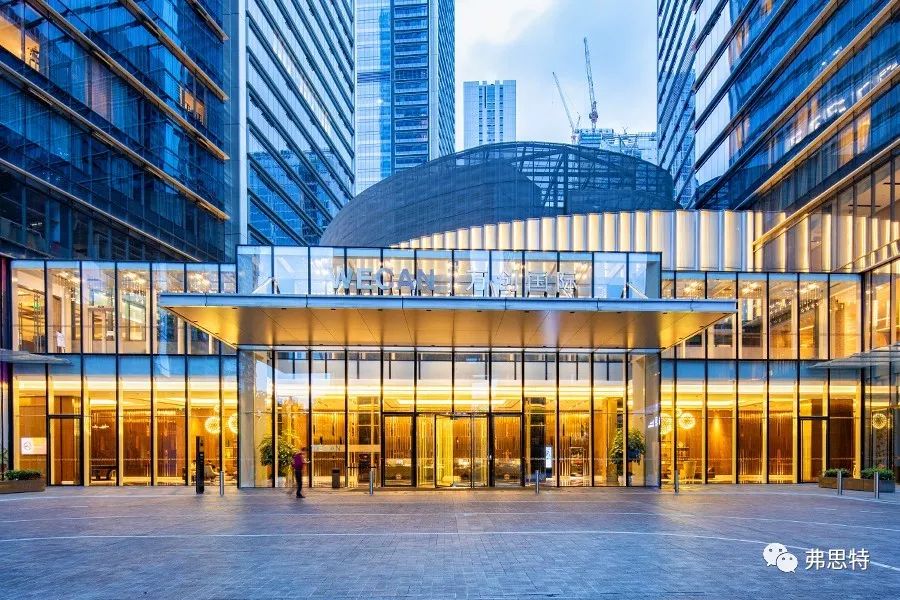
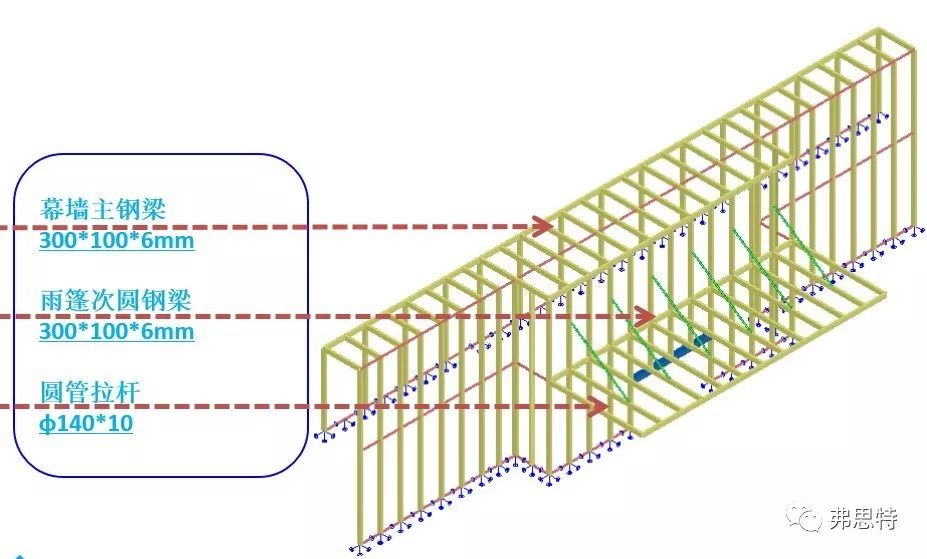
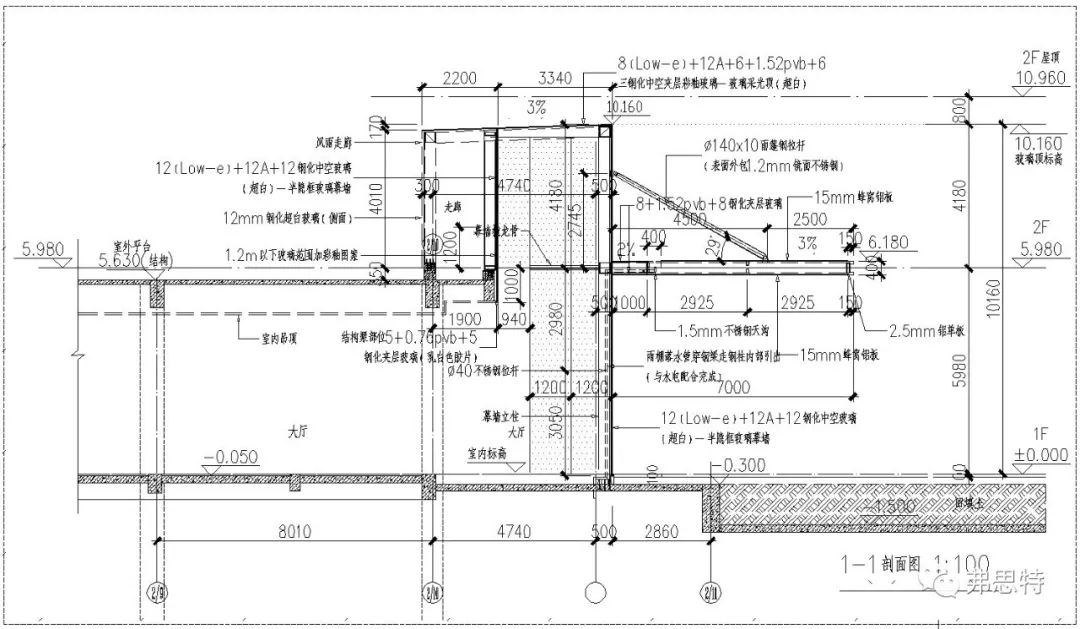
As the main entrance passage of Serviced Apartment, the hall connecting corridors has a two-story spatial structure system. The structural beam is not set in the main body of the second floor, and the facade supporting structure system, the top glass daylighting roof and the metal canopy with a cantilever of 7m are all supported by the facade with steel structure. The plane division has a width of 1.5m and a height of 5.98m. To ensure the flatness, 15mm honeycomb plate is used as the metal plate of cantilever canopy. The front 400mm high shape should be the 2.5mm aluminum veneer. As the canopy cantilever is 7m, considering the permeability and visual feeling of pedestrians at the main entrance, the metal plate at the junction between the canopy end and the facade is replaced by glass. The 3*3m frameless crystal revolving door and 1.3m wide automatic induction side-hung door ensure that it meets the traffic requirements of daily office and residential personnel, and also enhance the quality and luxury of the lobby.
Roof modeling system
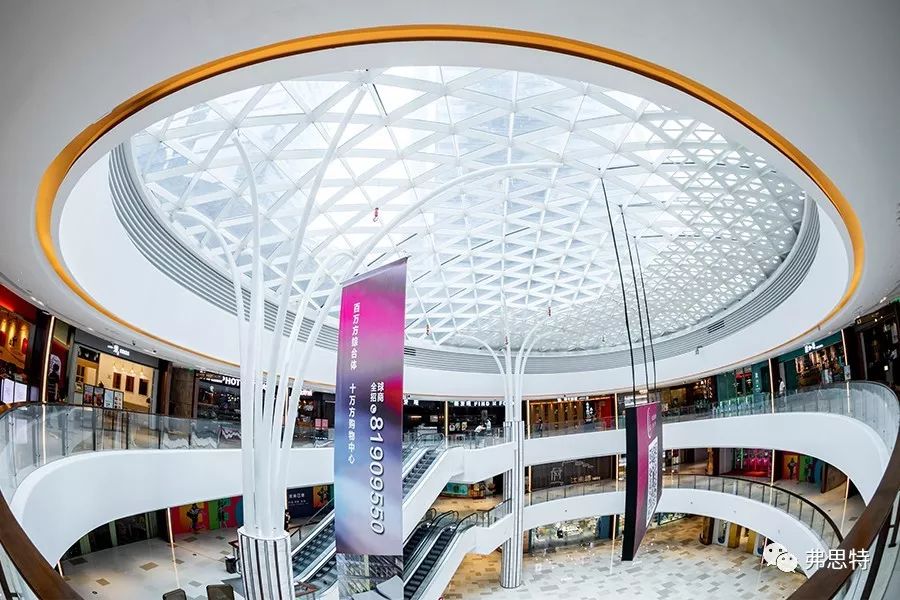
Bar length analysis
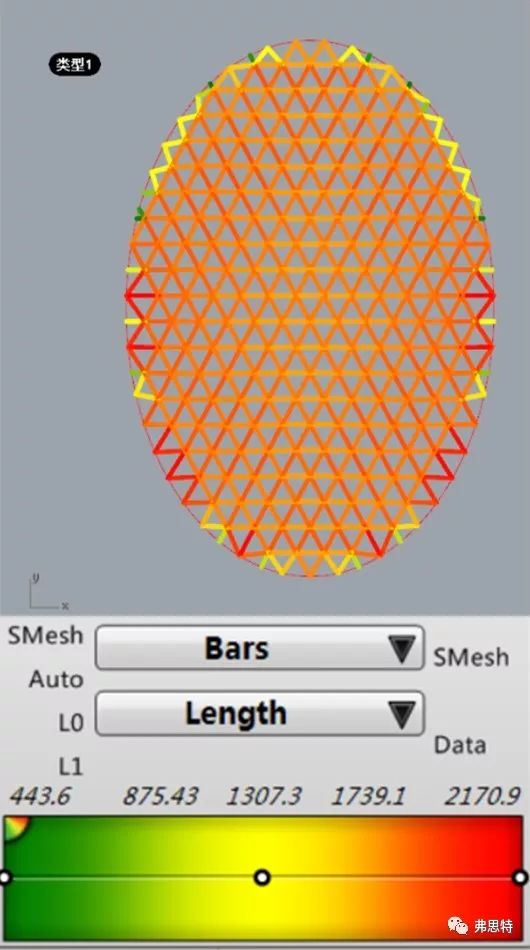
Plate smoothness analysis
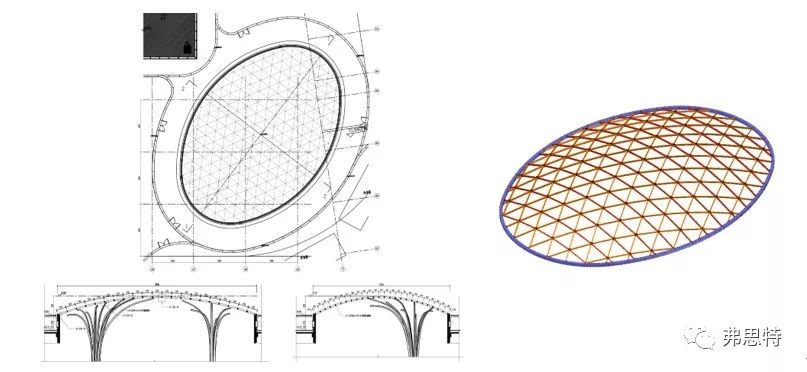
Plane section and final division 3D model diagram
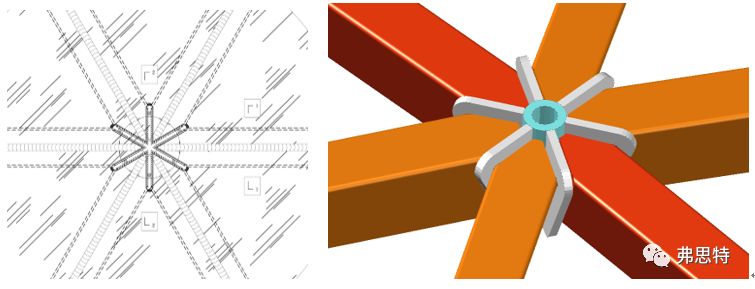
The daylighting roof of podium building atrium is elliptical spherical, and the effect should be lightsome and connected fully. Analyzed from the point of view of structure, it is most suitable for applying the single-layer latticed shell form. The latticed shell members are arranged separately with the daylighting roof, and the tree-shaped steel structure is not used as the main stress member. Thus, the division scheme of latticed shell has great influence on the structure. From the multiple perspectives such as analysis of plate smoothness and bar length, we give three schemes for the owner to choose in combination with the scheme form.
Meanwhile, affected by the elliptical sphere, the adjacent plate members have different degrees of torsion, and the indoor side look and feel is not delicate enough, which puts forward higher requirements for the section selection of lighting ejector members and the design of bar joints.
To avoid the torsion problem of adjacent plate members, the triangular section is adopted with reference to K11 project in Hong Kong, and the design similar to round drum joints is adopted at the connection joints of members to ensure the stiffness of joints, and it also provides hanging points for lamp installation and advertising space hanging.
Commercial set-back system
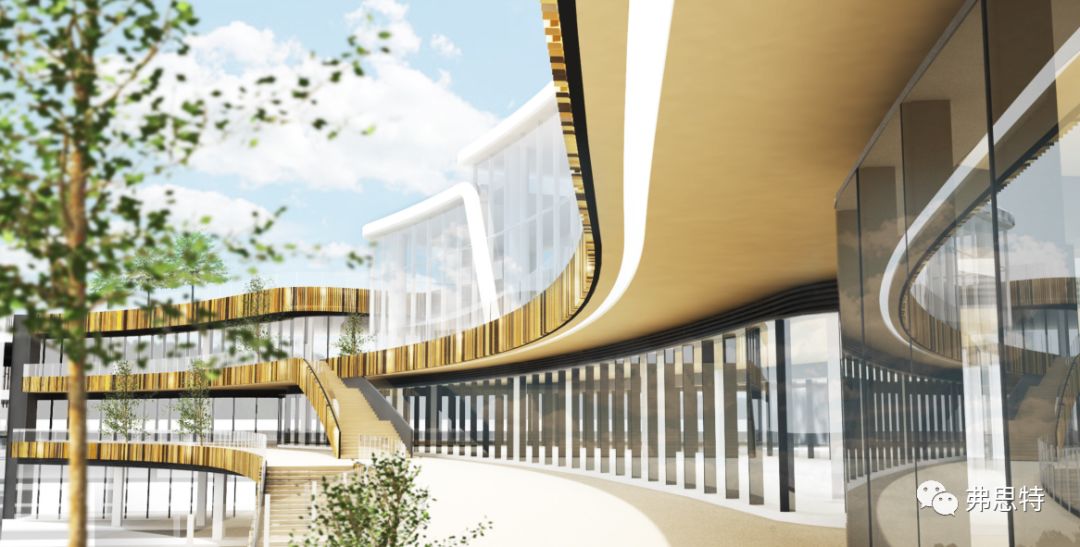
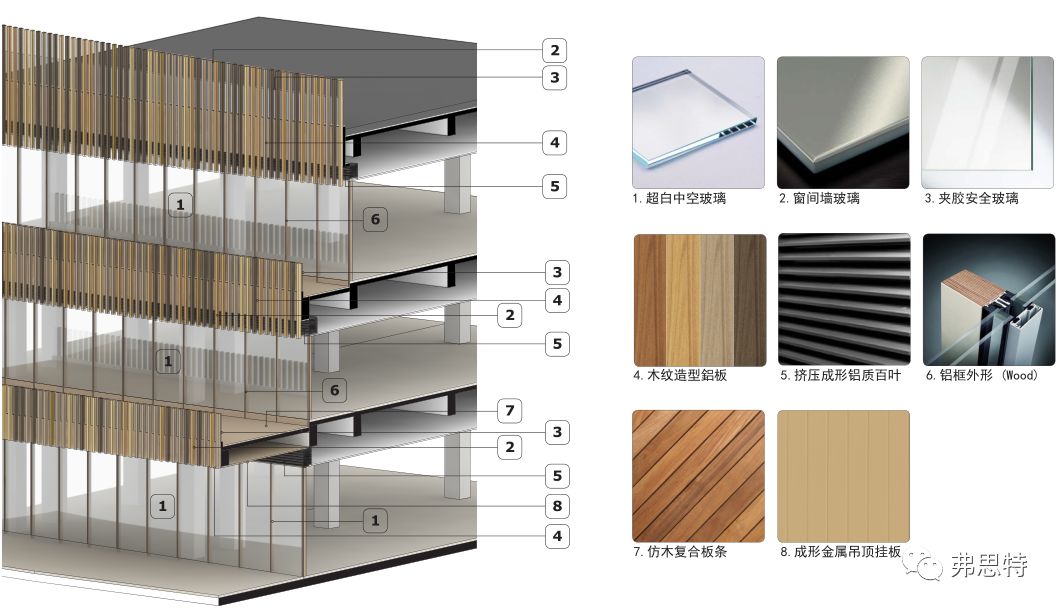
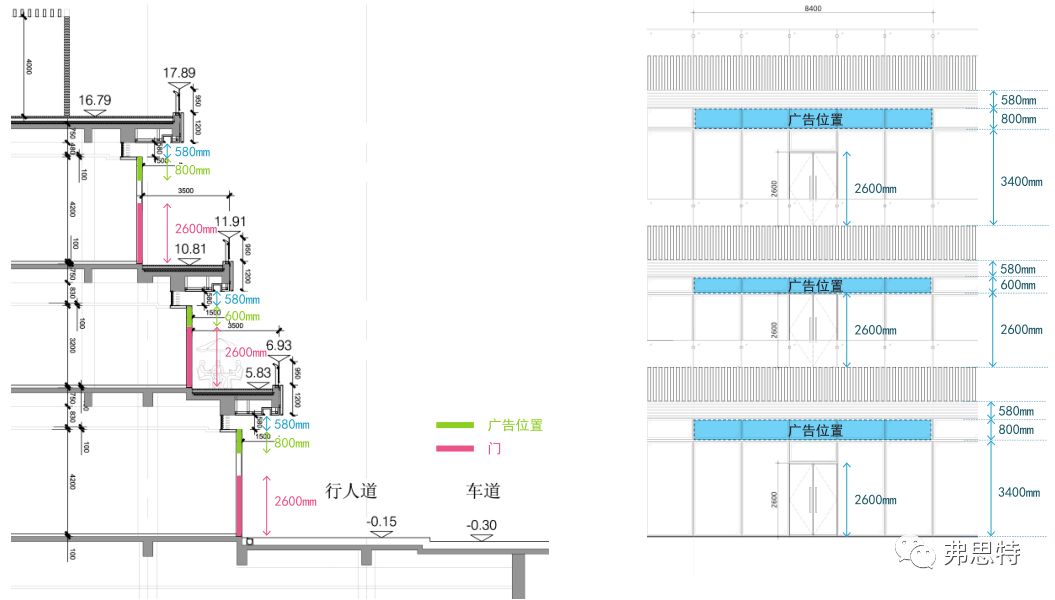
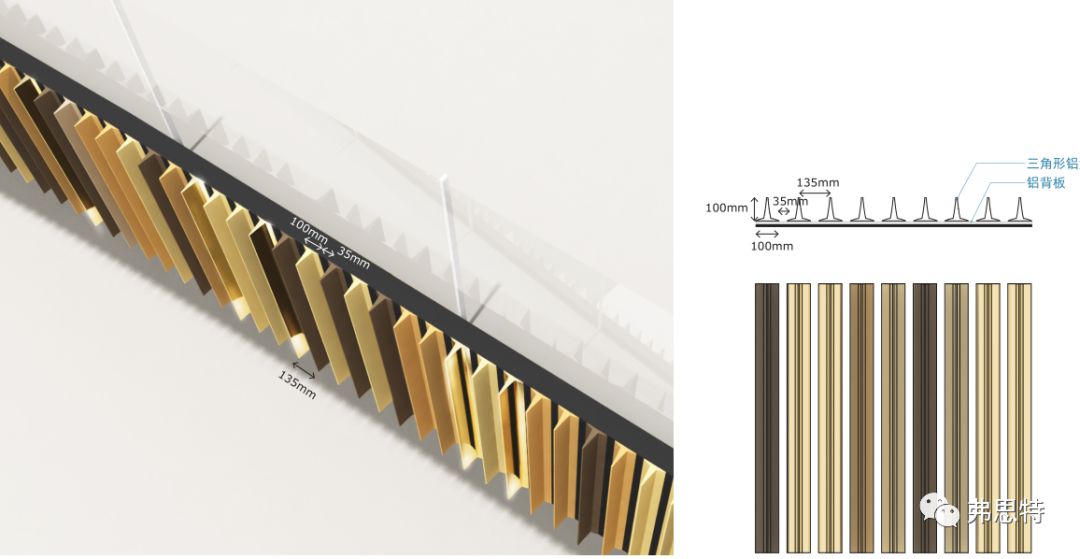
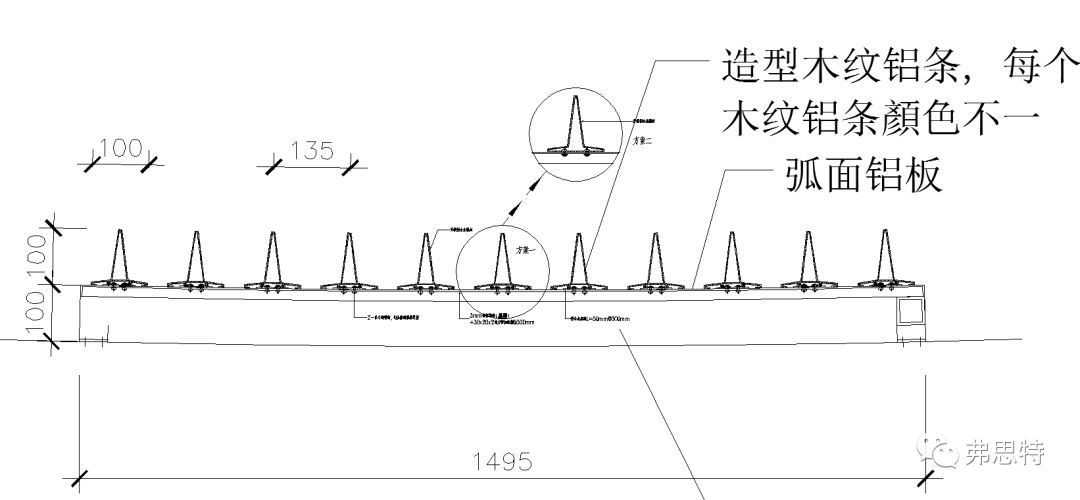
The west side of the podium commercial 1-3 floors are designed with receding layers, the glass curtain wall is not designed across layers, the glass is made of super white high translucent glass, the advertising space is set at the top, the back of the advertising space is made of louvres as the base material, the outer wall structure of the walkway is made of metal aluminium panels as the base material, the aluminium panels are set with triangular sawtooth metal shapes on the outside, the surface treatment of the sawtooth shapes is made of different colours of imitation wood grain spraying to achieve the requirement of changing effect levels.
The core charm of EFC lies in that it can improve people's work efficiency and they can enjoy life more happily, and enhance people's value in multiple dimensions, thus enhancing the value of the whole region. In the EFC service project, FORCITIS communicated with the owner, designer and contractor for many times to ensure the perfect implementation of the project and strive to create value for customers. We also hope that EFC can maximize its value and promote the great economic development of Hangzhou.
-

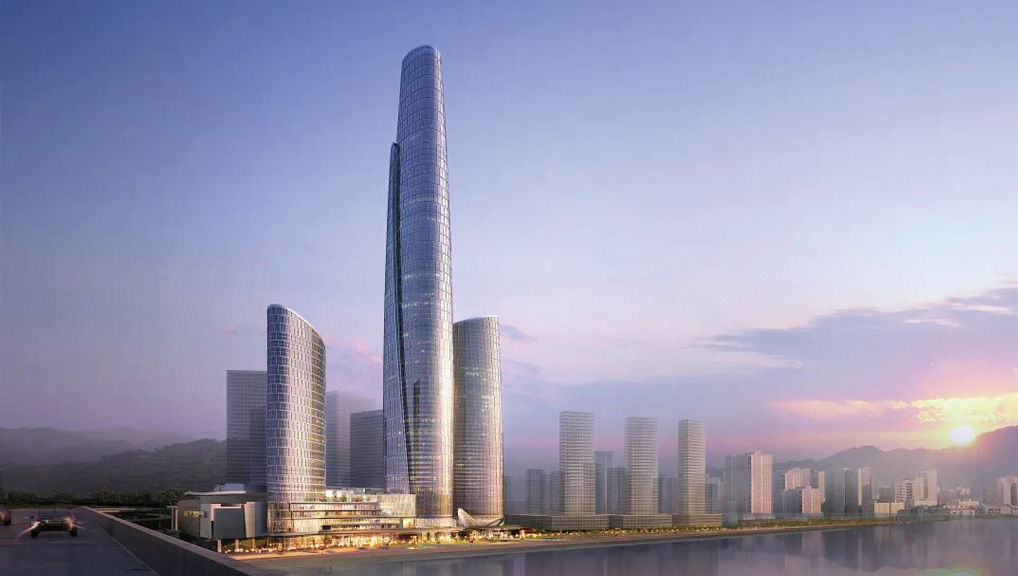 Chongqing Vanke Luhai International CenterChongqing Vanke Luhai International Center, High-end commercial building integrating commerce, leisure, hotel and office.
Chongqing Vanke Luhai International CenterChongqing Vanke Luhai International Center, High-end commercial building integrating commerce, leisure, hotel and office. -

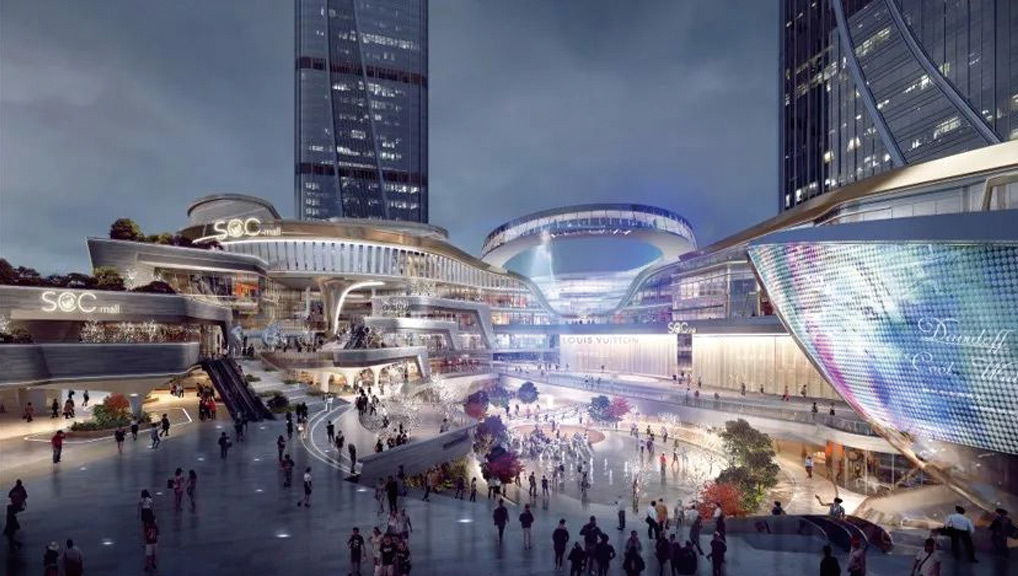 Shenzhen Shimao Shengang International CenterThe architectural lines are smart and elegant, integrating the crystallization of nature, art and science, and integrating the future life picture with the innovation and development of the city.
Shenzhen Shimao Shengang International CenterThe architectural lines are smart and elegant, integrating the crystallization of nature, art and science, and integrating the future life picture with the innovation and development of the city. -

 Jinan Vanke MetropolisA service concept that goes beyond what is thought of to reshape people's imagination for a better city.
Jinan Vanke MetropolisA service concept that goes beyond what is thought of to reshape people's imagination for a better city.







